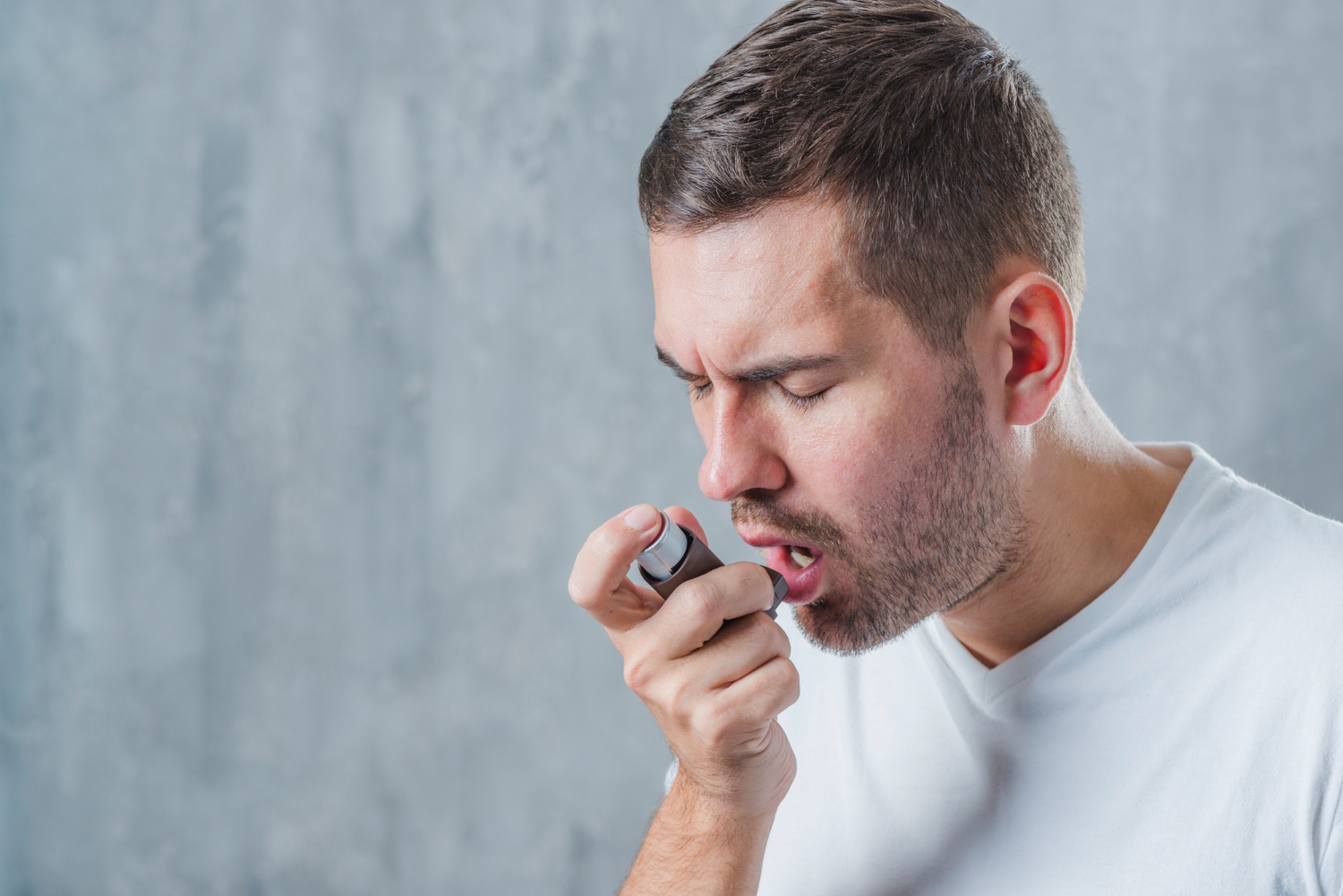
Living with asthma can be challenging as it can interfere with your everyday life. Although there’s no cure for asthma, you can self-manage it or work with a trained healthcare provider to ease asthma symptoms, stay active, and breathe well. The most important thing to living with asthma is keeping it under control. Identifying asthma symptoms, avoiding asthma triggers, and using medication properly are some ways to keep asthma at bay.
Identifying Asthma: Symptoms, Triggers, and Warning Signs:
Asthma is a chronic disease that affects your lungs and compromises your ability to breathe. It occurs in episodes, meaning that it can come and go. The following are some symptoms of asthma that can help you identify it:
- Shortness of breath
- Chest tightness
- Wheezing
- Coughing at night or early in the morning
If you’re living with asthma, you need to know about triggers that cause your asthma and how you can avoid them. Some common triggers include:
- Exercise
- Stress
- Strong emotions that contribute to changes in breathing patterns
- Respiratory infections
Asthma triggers are of two types: allergens that cause reactions like runny nose, sneezing, or watery eyes and irritants that cause injuries to the airways.
| Allergens | Irritants |
| Pollen | Strong odors |
| Dust and dust mites | Extremely hot or cold weather |
| Mold | Air pollution |
| Animals with fur and feathers | Smoke |
| Cockroaches and rodents |
Below are the early warning signs that indicate your asthma is acting up.
- Trouble with sleeping
- Throat clearing and itchiness
- Chin itchiness
- Headache
- Breathing changes [1].
Living & Managing Asthma:
Performing day-to-day activities is quite challenging for people living with asthma. You can manage the symptoms of asthma by following some essential tips.
1. Eating healthily:
As there’s no special diet for people with asthma, eating healthy is still vital. Some food additives and some foods containing sulphur (processed potatoes, wine, dried fruits) can trigger asthma symptoms and should be avoided.
Food allergies may also trigger your risk of having asthma attacks to soy, shellfish, peanuts, milk, or wheat, says the Asthma and Allergy Foundation of America. So, people need to eat plenty of fruits, veggies, and omega-3s.
2. Exercising Regularly:
Many people think that exercise can trigger the symptoms of asthma. The right and appropriate form of exercise can improve asthma symptoms. According to a study, better asthma control and lung function are associated with higher levels of physical activity [2].
3. Using Inhaler Correctly:
You can cut your risk of an asthma attack by using the inhaler correctly because the correct inhaler will make you breathe the medicine directly into your lungs.
4. Do Not Smoke:
People living with asthma are advised to not smoke because smoking increases the chances of asthma attacks [3].
5. Managing Stress:
Getting quality sleep, exercising regularly, and avoiding stressful situations can overcome asthma’s most frequent stress trigger.
Medications for Asthma:
Besides self-managing your asthma symptoms, you can also use asthma medications:
- Quick-Relief Medications: A metered-dose inhaler that prevents the squeezing of muscles around the airways.
- Long-Term Control Medication: Oral corticosteroids, theophylline, and leukotriene receptor antagonists (LTRAs) reduce mucus production and airway inflammation to ease asthma symptoms [4].
Your quality of life is highly influenced when you have asthma. Becoming completely reliant on inhalers would not help ease asthma symptoms unless you self manage the symptoms. Taking care of your sleep and diet, exercising regularly, and avoiding triggers can help you live without hassle. Make sure you follow the doctor’s advice and monitor your asthma symptoms between appointments.
Contact A-Z Primary Care and Walk-In
If you’d like to seek guidance in dealing with your Asthma or you think you might be suffering from the symptoms of Asthma and would like professional help, contact us today. Click Here to be redirected to our contact page to request an appointment.
Visit Our Office
Location
2940 FM-2920 Suite#150
Spring, TX 77388
Fax: (281) 730-5919
Hours
Monday – Thursday
8:00am – 5:00pm
Friday
8:00am – 1:00pm
Saturday/Sunday
CLOSED
References:
- Stubbs MA, Clark VL, McDonald VM. Living well with severe asthma. Breathe (Sheffield, England) 2019;15:e40–9. https://doi.org/10.1183/20734735.0165-2019.
- Bacon SL, Lemiere C, Moullec G, Ninot G, Pepin V, Lavoie KL. Association between patterns of leisure time physical activity and asthma control in adult patients. BMJ Open Respir Res 2015;2:1–7. https://doi.org/10.1136/bmjresp-2015-000083.
- Gautier C, Charpin D. Environmental triggers and avoidance in the management of asthma. J Asthma Allergy 2017;10:47–56. https://doi.org/10.2147/JAA.S121276.
- Asthma – Living with – NHS n.d. https://www.nhs.uk/conditions/asthma/living-with/

